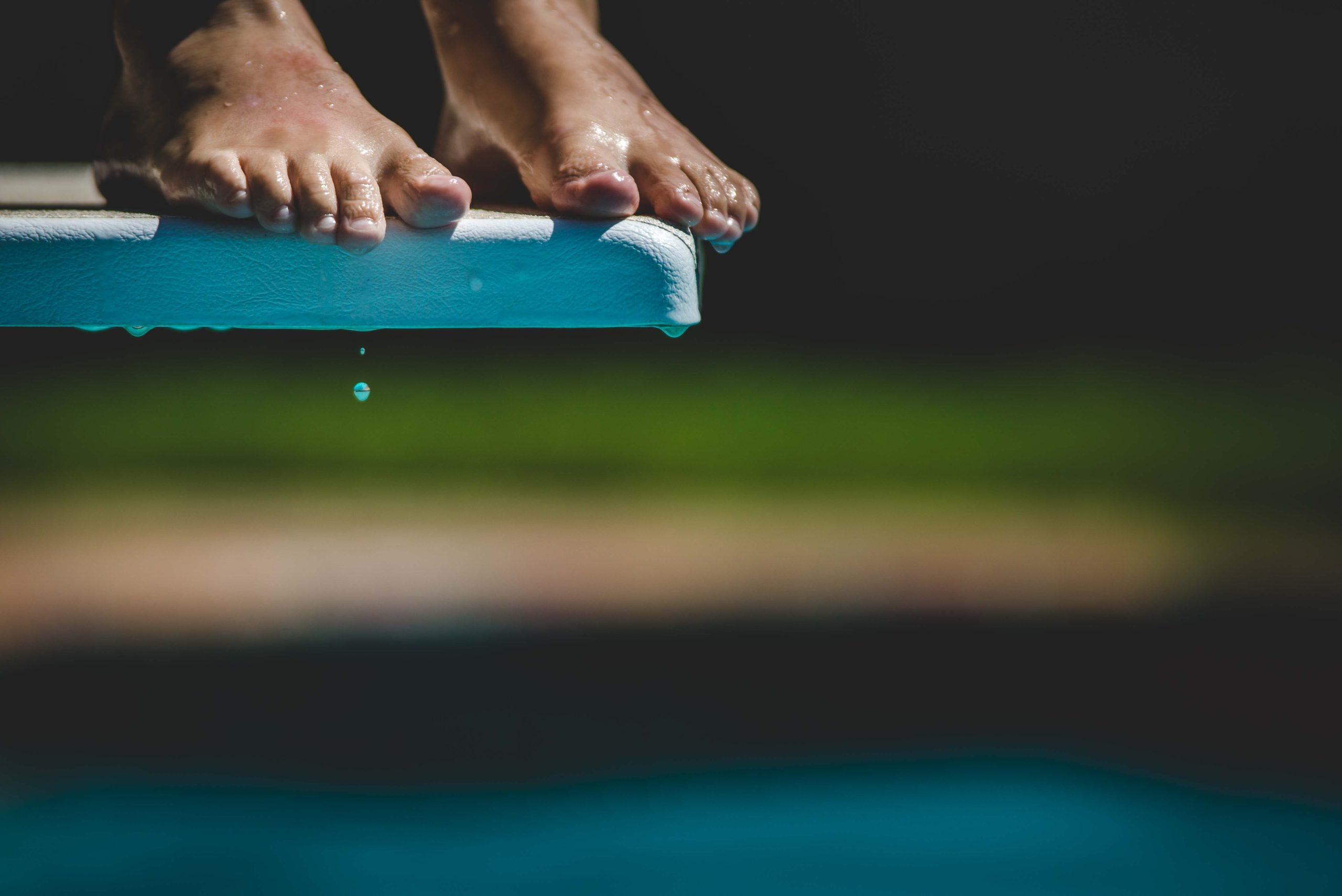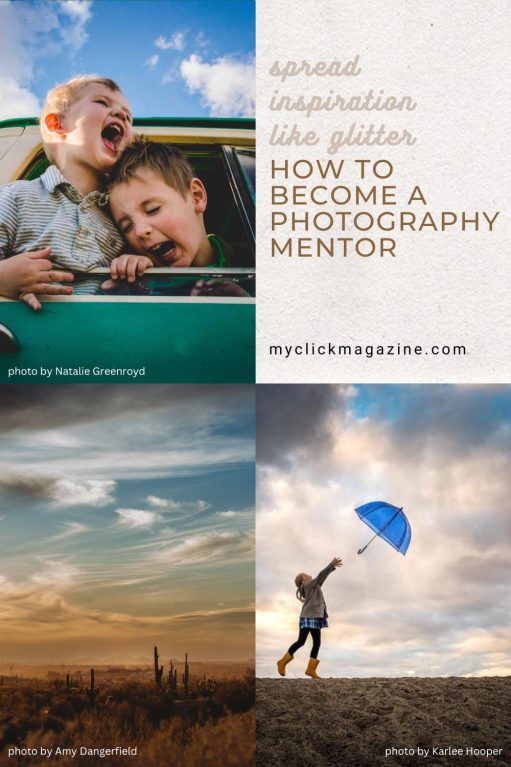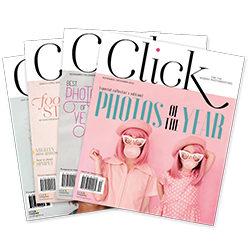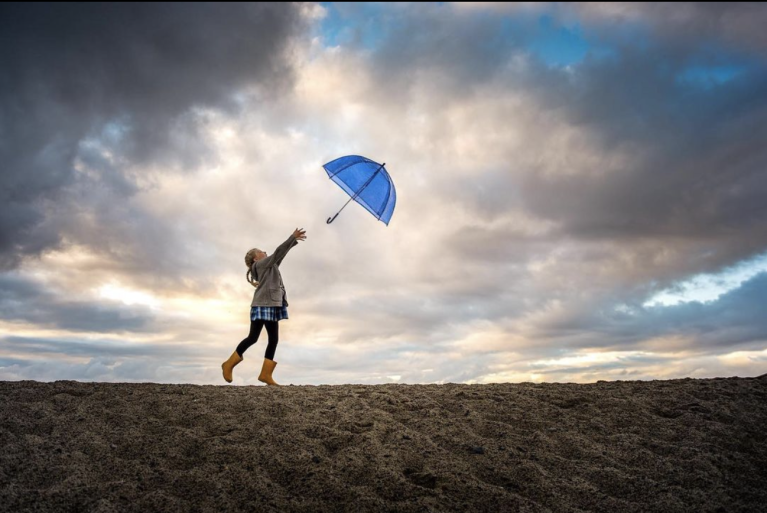Feature photo by Karlee Hooper
You’re an amazing photographer. You worked so hard to get here, and you remember what it was like working your way up, building your passion for photography into something more. Now that you’re reaping the benefits and you’re confident in your skills, vision and artistry, you’d like to help others achieve success by becoming a mentor. But how?

First, make sure you have experience and expertise.
To be a photography mentor, you should be confident in your skills and voice, and have expertise in what you’re going to teach. If you want to be hired, you’ll need to let potential mentees know that you’re good at what you do. Here are a few ways to do that:
• Post your best work on social media (and post often).
• Blog about your accomplishments, photo sessions, business offerings, and photo tips.
• Post tutorials on your website, forums you’re in, even on social media.
• Curate your website and social channels to display only your best work.
“We all stand on the shoulders of those who’ve come before us. A great mentor knows this, has stood on those shoulders too, and is willingly reaching out their hand to help up the next person.” — D’Ann Boal, Click Community Mentor

Next, decide what kind of mentor you want to be.
Are you amazing at business, marketing, social media, web design, Photoshop, posing, styling, shooting… or all of it? You know what you’re good at and what you have to offer another photographer.
Sometimes potential mentees will reach out to you when you least expect it. That’s great! Just make sure you’re an expert at what they’re asking you to teach.
It’s also a good idea to hammer out the pricing, time commitment and other details before you agree to be someone’s mentor.
“To make a mentorship valuable, understand the importance of meeting your mentee where they are and tailoring what you have to offer for their specific needs,” says Natalie Greenroyd, mentor and pro family photographer. “Putting in the work before your mentorship even begins is so important. Having a pre-mentoring questionnaire is useful, but I like to go the extra step of having an in-depth conversation (or two) with my client before the mentorship actually even begins. Getting to know them, understanding what photography means to them, and finding out where they are struggling is what makes a mentorship more valuable than all the free videos and education you can find online.”
Always have a contract.
Ultimately, you’re the one building your mentorship program, so what you include in your contract is completely up to you. But never assume that something “goes without saying.” It’s better to spell it out so that all parties are clear on all aspects of the relationship.
According to Click Community mentor Amy Dangerfield, a photography contract should include cost, time frame, manner and method of delivery, cancelation and termination terms, rescheduling terms, copyright, and a non-compete clause.

Lastly, you need to reach out to potential mentees.
Now that you’ve decided to become a mentor, it’s time to attract potential mentees. Many times, photographers will reach out to you just because they love your work. But it will help to put it out there that you’re open to photography mentorships. Here are a few ideas:
-
-
- Include a “mentoring” or “for photographers” section on your website.
- Teach a class and let your students know you also offer mentoring.
- Write tutorials and post them often.
- Post about it on social media.
-

Pricing Tips
While it’s great to pass along your knowledge and pay it forward, you gotta get paid what you’re worth. Just like photo sessions, becoming a mentor is part of your business. You’ll need to set your prices to make a profit without burning out.
“I have an hourly rate set for myself, which is based on the annual salary I want to earn. To find that rate, I calculate based on the time I’ll spend, then add in hard costs like my Zoom subscription, venue rental (if needed), printing materials (if applicable), etc.” says Amy Dangerfield.
What makes a GREAT photography mentor?
“A great mentor is an open book who has been in the industry for years and has ridden the waves of ups and downs that come with this profession. They should have a prolific body of work and continue to push themselves to create images outside their comfort zone. A great mentor is a lifelong student who cheers others along and is as passionate about teaching as they are about photography.” — D’Ann Boal
“A great mentor genuinely cares about the success of their mentees more than the money she can make from teaching.” — Amy Dangerfield
“Building a strong relationship with your client is just as important as the photography aspect. You can’t help someone with their photography struggles if you don’t understand their photography struggles on an empathetic level.” — Natalie Greenroyd

This is the third article in our mentoring series, created in partnership with Fujifilm. A version of this story first appeared in the Winter 2023 issue of Click.
PIN THIS




